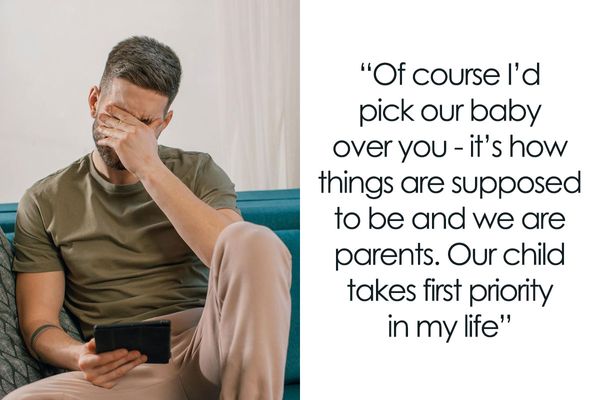Making stepfamilies work is not an easy task. While parents might be excited to approach remarriage and the new family, the children often face challenges. Failing to address these difficulties can lead to long-term issues like feelings of resentment and disappointment towards the parents.
Redditor Square-Cloud4942 has even withdrawn from her father over the years because she felt like he prioritized his new family and happiness over her. The stepsiblings and stepmom weren’t exactly accommodating either, leaving her to adjust to the changes on her own. Only after 12 years did her father notice this and offer to go to a therapist, but the truth that came out was too much for the family to handle.
Children in stepfamilies have a hard time adjusting to new changes

Image credits: Ron Lach / pexels (not the actual photo)
This daughter didn’t receive any support from her biological father in such a situation and started to blame him for letting her down




Image credits: olia danilevich / pexels (not the actual photo)





Image credits: cottonbro studio / pexels (not the actual photo)


Image credits: Square-Cloud4942
40% of households in the US are blended, and 75% of them aren’t prepared
Surprisingly, stepfamilies make up a large portion of households in the US, as 40% of them are blended, with 1,300 new ones formed every day. And it takes the average family five to seven years to fully blend.
During this process, a whopping 75% say they don’t have the resources to navigate their new domestic situation. Without the proper knowledge, it can be difficult to successfully combine two families.
Before the couple commits, they should know that stepfamily challenges are unique and more complex than those faced by first-time families. In fact, psychologist William Merkel describes them as “the most complex, unnatural, and difficult set of relationships known to humankind.”
Something that many children and adults struggle with is establishing a good relationship with new family members. Bonding with stepchildren can be difficult, as the kids may feel reluctant to trust them.
Younger ones might be quicker at relying on them and loving them as a parent, but teenagers feel that you have to earn their trust and respect. In addition, an adult entering a household without children of their own can feel even more stressed while bonding and learning a new role.
Siblings can also start butting heads from time to time. They may feel additional stress that comes with trying to blend in with people who have varying personalities. Perhaps there are some unresolved hurtful feelings from the previous marriage or a lost parent too. Jealousy for attention or seeing other stepsiblings being treated affectionately can lead to some outbursts as well.

Image credits: Oleksandr P / pexels (not the actual photo)
Growing up in a stepfamily can greatly affect children
Growing up in such an environment can greatly affect children. The aftermath of divorce may leave them feeling abandoned by their biological parents. When the children gradually start caring for the new family, they might struggle with confusing emotions. They may worry that loving the new family means betraying the biological one, which can cause them to act out.
Research on family structure also found that children in one-parent, blended, and stepfamilies are more likely to suffer from mental disorders than those in nuclear ones. Some of them include separation anxiety disorder, major depressive disorder, and conduct disorder. It also revealed that children from stepfamilies left their homes, entered romantic relationships, and identified themselves as adults earlier on.
In order to have a smoother and more successful process of blending two families, experts advise against rushing into it. By taking their time, couples can give everyone a chance to get used to the idea of remarriage and a new family. Too many changes at once can make children feel uneasy. Such households have the highest success rate when they wait for two or more years after a divorce instead of overwhelming their kids with one change after the other.
Another factor contributing to a thriving stepfamily is clear, open, and frequent communication. When members talk things through, there are fewer opportunities for misunderstandings to arise. It’s also advised to not keep emotions bottled up or hold grudges by trying to address conflict right away. Listening respectfully to one another is also important and creates a judgment-free environment. Games, sports, and shared activities can be a great opportunity for communication when done together as a family.

Image credits: Ivan Samkov / pexels (not the actual photo)
Commenters titled the daughter as not wrong





























